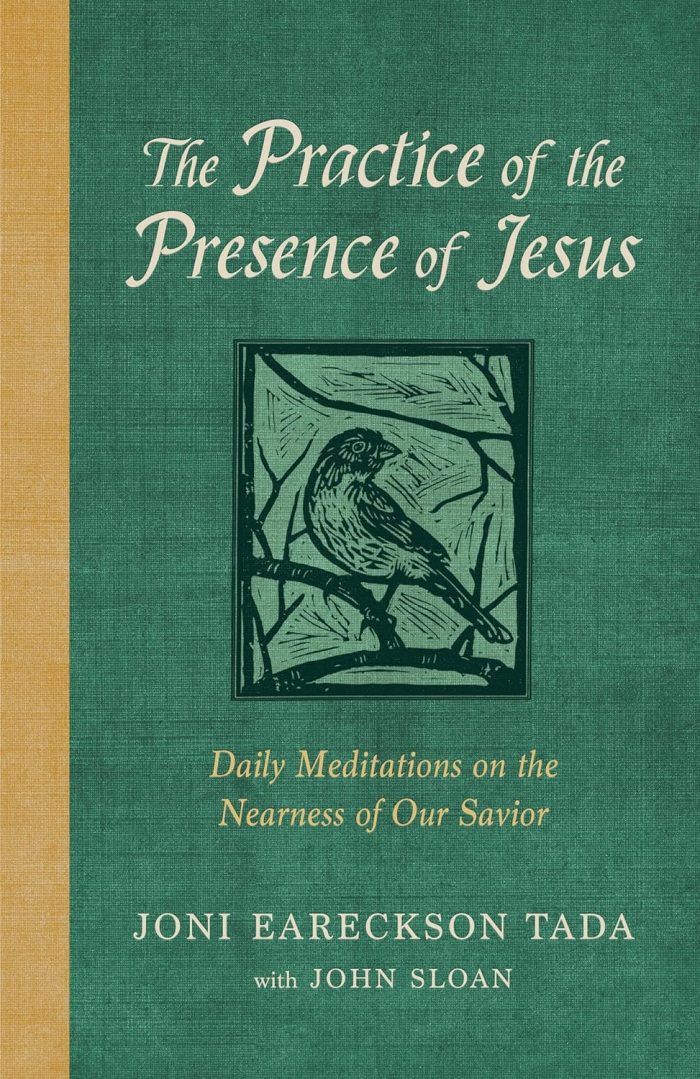A while ago I got some questions from someone; the first is here discussed. The other is about having experiences of faith. From the question I take two points.
One point is that faith in the Lord Jesus Christ brings with it a very basic emotion, which is joy and gladness. Then you can experience that the Lord is close to you.
As a second point, we will address the phrase "the presence or nearness of God. It is a Biblical concept, but is often used in the wrong way.
The questioner's text
The questioner explained his question about faith experience at length. From that the following quote.
On your site you write against un-Biblical dealings with God. By doing so, you warn against inner experiences that would not come from God, but from demons. It is possible that someone may take this the wrong way and think that you believe there could be no inner experiences of faith or experience. I know you don't mean it that way, but wouldn't it be a good idea to give this some more thought? Here are a few more points - from my own experience - that you might be able to use as "capstans.
- It is wonderful to experience the nearness of God in your quiet time. Even David knows: "It is good for me to be close to God" ((Psalm 73:28a). By the way, I must add that during your quiet time you do not always experience this very strongly, and sometimes not at all.
- We cannot bring about that experience of God's nearness ourselves at the times we would like, but the Lord gives it at the times He sees fit for us. That sometimes happens during quiet time, or while listening to a sermon, or while singing, and so on. But the Lord also wants to exercise us in faith without any particular experience. Paul writes in II Corinthians 5:7, "We walk by faith, not by beholding." I might add: ....... And we do not always walk - fortunately from time to time we do - by experience, by perception.
Inner experience of faith: joy
First of all, then, the experiences of faith. The apostle Peter wrote beautifully about this in his first letter.

“ 3 Praised be the God and Father of our Lord Jesus Christ, Who, according to His great mercy, caused us to be born again to a living hope, through the resurrection of Jesus Christ from the dead, 4 to an imperishable, immaculate and incorruptible inheritance, which is kept in the heavens for you.
5 After all, you are guarded by the power of God through the faith to salvation, which is ready to be revealed in the last time. 6 In it welcomes you yourself, even if for a short time now - if necessary - you are grieved by all kinds of temptations, 7 so that the testing of your faith - which is of greater value than that of gold, which perishes and is tried by fire - may prove to be to praise and honor and glory, at the revelation of Jesus Christ.
8 Though you have not seen Him, love Him anyway. Though you do not see Him now, but believe, rejoice with unspeakable and delightful joy, 9 and obtain the end goal of your believe, namely, the salvation of your souls..." (1 Peter 1:3-9).
Actually, the text speaks for itself; it is plain language. But still a brief explanation because, what he writes here, we may also see as "the core of the Christian life.
- It refers to the cause and source of our salvation: God, the Father of the Lord Jesus Christ.
- Our life here on earth is placed in the perspective of life in the hereafter. That is the inheritance we will inherit with Christ. In that future glory we rejoice.
- But life down here is not simple; there are sad circumstances, things that test faith. That should not take away the joy of faith. We cling to faith so that it grows stronger and the joy and gladness remain.
- The believer rejoices in two things
- in the salvation that will soon be revealed after this life (verses 5 and 6);
- in the Lord Jesus Christ, whom we love and in whom we rejoice. (verse 8)
- It is the joy of knowing the Lord Jesus as our Savior, our Savior. He is the One who paid my debt to God and redeemed me from the consequences of sin. He is also the One with Whom I may soon share the inheritance; I may soon share His glory for all eternity.
All a Christian's joy is in the person of Jesus Christ and His atoning work on the cross of Calvary. Then indeed, as the questioner also sees it, whenever we read the Bible and reflect on it (Colossians 3:1-3), we experience that inner joy and there will also be praise and thanksgiving for God the Father and for Jesus Christ in our hearts.
Joy in the Psalms
Even the psalmists knew about dealing with the Lord and knew about joy, gladness and praise. Just read, for example, the following texts.
- "But the righteous rejoice; they leap for joy before God, and are cheerful for joy." (Psalm 68:4)
- "You make known to me the path of life; abundance of joy is with Your face, loveliness is in Your right hand forever." (Psalm 16:11)
- "LORD, the king rejoices in Your power. How much he rejoices in Your salvation! (...) For You set him to great blessing forever, You rejoice with joy, with Your face." (Psalm 21:2,7)
- "(...) so that I may go to God's altar, to God, my joy, my delight; and I may praise You with the harp, O God, my God!"(Psalm 43:4)
- "(...) serve the LORD with gladness, come before him with joyful singing." (Psalm 100:2)
- "Yes, Your testimonies are my source of joy; they are my counselors." (Psalm 119:24,77,92, 143, 174)
What suddenly strikes me in these verses is that in them joy and gladness is always connected with "God's countenance. The psalmist experiences inner communion with God and the direct result is gladness, joy and praise. He apparently experiences it in such a way that he is close to God and could see His face. We have written about this "hidden intercourse" before; e.g. here.
Experiencing God's nearness
The questioner uses the phrase "experiencing God's nearness," and there is nothing wrong with that. The term is simply found in the Bible, as also quoted from Psalm 73:28. The term "God's countenance" (or "My countenance") which we have already seen above from the Psalms also lies against this.
Yet the idea of "being close to God" or "experiencing God's presence" is widely used today in the wrong, mystical way. Therefore, I am just tying up some thoughts here to warn against the misleading use (better: misuse) of these expressions.
The first thing to note regarding the phrase "experiencing God's presence" is that it is not about how far (in measurable distance) God is from us. It is not about whether He comes closer to us so that we could physically experience Him. Our God is omnipresent as we call it, He is everywhere1. But we cannot see or experience Him with our (physical) senses. Therefore, that cannot be the meaning of "God's nearness" or "God's presence" and the meaning must be on another level.

Nowadays there is much talk and writing about the "presence of God" or "the presence of Jesus. In English it is then called "the Presence of God," "The Presence of Jesus," or simply "The Presence. When you search for the Dutch 'the presence of God' on Google you get 840,000 hits within a split second! I think that indicates how important this topic is considered. But it is striking that most of these references are about being able to feel or experience that 'presence'.
An example: one of many
Taking out one of the first hits, we will illustrate what people are talking about. The article on the Dutch site is called "Four steps that help to experience God's presence very tangibly" (see here) and I outline - partly in my own words - the four steps here2. It involves
- Hardship. Recognizing your own personal bankruptcy. That means recognizing that it is impossible for us to make anything happen, without Him. Our efforts are completely useless.
- Concentration. Also called silence; the principle of focusing all your attention on God. We discover that being "frozen in His sweetness" means that the silence we offer Him is overpowered by the silence that comes from Him.
- Worship. The third stage you may enter. Worship is incomplete until our soul is silent. The most indispensable element of the Christian life. It is both enjoying and practicing our oneness with God.
- Manifestation. In worship, there will always be a manifestation of God's presence. If we focus our attention on Him, it will take us like a river takes a surrendered body. Worship is the secret to experiencing the manifestation of His presence.
At the end of this four-step article is the following: “To behold Him in sweet fixation and loving worship is more valuable to God than any spiritual gift or service." The writer then cites a quote from A. W. Tozer, which he finds quite appropriate here: "When the eyes of the soul looking outward meet the eyes of God looking inward, heaven on earth has begun.”
Both phrases derive from the mystical experience of the unification or encounter with God.
It is contemplation, but described somewhat differently
There are a few things in this description that we should comment on.
The four steps are described as a process that should lead to a "manifestation of God's presence. It is suspiciously similar to the steps a person must follow in contemplation to achieve the 'unification with God. That it is indeed the same is confirmed by various hits on the Internet when you search for 'contemplation'. For example, you may come across the following expressions (on Dutch sites)
- Contemplation: be welcome present to the Present (see here}
- Contemplation and awareness of God's presence (cf. here)
- Contemplate, contemplate, ponder - Inner experience of God's presence (see here)
Contemplation is thus explicitly related to the "presence of God.
It is noteworthy, by the way, that above on Manifestation it is said that "it takes us like a river takes a surrendered body. Worship is the secret to experiencing the manifestation of His presence." This immediately reminds us of Paul's words, "You know that you were pagans, drawn away to the dumb idols. Thus you allowed yourselves to be carried away." (1 Corinthians 12:2). Which, again, may well show that this is a pagan custom that brings people to idols.
The presence of God or Jesus
I have the strong impression that contemplative thought (and its associated practice) is still on the rise, leaving no group of Christians untouched.
For example, while writing this article I discovered 'by chance' that a book has recently been published by the well-known Joni EarecksonTada that deals with this. It's called "The Practice of the Presence of Jesus" and it hasn't been translated into Dutch yet, but I suspect that won't take too long.

On Amazon, among other things, the following text accompanies the book:
"Discover the joy of consciously abiding in the presence of God. Beloved author Joni interweaves contemporary insights with the timeless wisdom of the seventeenth-century monk Brother Laurentius (Brother Lawrence). (...)
The practice of the "Presence of Jesus" brings the wisdom of these two everyday saints, over 400 years apart, to teach and inspire you to experience the nearness of God in your life. ..."
Now this is just one book, but if you search on Amazon for 'presence of God' or 'presence of Jesus' then you are presented with thousands of titles. It is unimaginable; apparently it fills a tremendous need. A need of Christians who are missing something in their faith life and believe that this is it: the presence of 'the Present One.'
Christ the Crucified is missing
The second thing that stands out in the four-step narrative is the complete lack of reference to the Cross of the Lord Jesus Christ. That is always lacking in contemplation, just as it was a lack in the church at Corinth. Paul puts his finger on it in the beginning of his first letter when he says:
- "For Christ has sent me ... to preach the Gospel, not with wisdom of words, lest the cross of Christ lose its substance." (1 Corinthians 1:17)
- "we, however, preach Christ the Crucified, to the Jews a stumbling block and to the Greeks a folly." (1 Corinthians 1:23)
- "For I had resolved to know nothing else among you but Jesus Christ, and Him crucified." (1 Corinthians 2:2)
You see it in the four-step story quoted above: you have to face your own bankruptcy. Aside from exactly what that means and then how to do that and for how long .... Why doesn't such a story begin with Christ the Crucified? Who died to save lost sinners from eternal destruction? Why is it not about His work on the cross of Calvary? Because therein lies all that God wants to give us, and that is quite a lot!
We conclude with Paul's words to the church in Ephesus when he writes the following:
” 3 Blessed be the God and Father of our Lord Jesus Christ, Who has blessed us with every spiritual blessing in the heavenly places in Christ, 4 because He chose us in Him before the foundation of the world, that we might be holy and spotless before Him in love.
5 He predestined us to be adopted as His children, through Jesus Christ, in Himself, according to the good pleasure of His will, 6 To the praise of the glory of His grace, with which He has blessed us in the Beloved.
7 In Him we have redemption, through His blood, namely the forgiveness of transgressions, according to the riches of His grace, 8 which He has given us abundantly, in all wisdom and thoughtfulness,
9 when, according to His good pleasure, which He had intended in Himself, He made known to us the mystery of His will, 10 to bring all things together again in Christ in the dispensation of the fullness of times, both what is in heaven and what is on earth."
(Ephesians 1:3-10)

Footnotes
